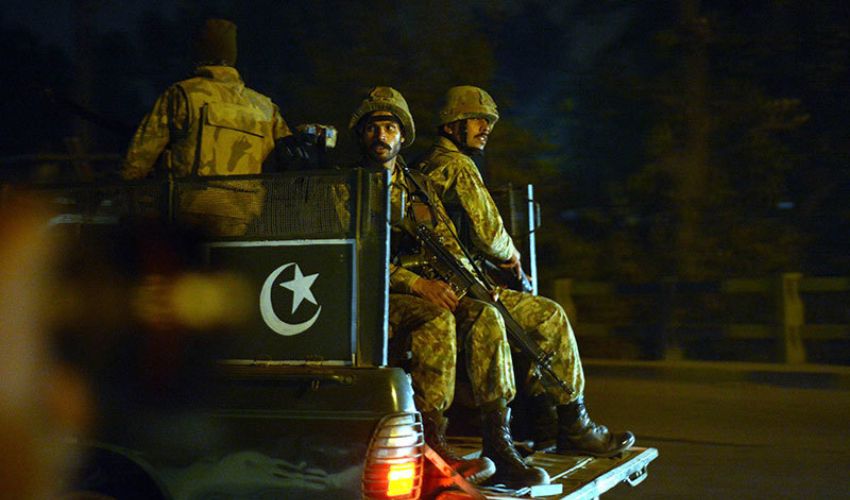The Intelligence Bureau (IB) has decided to withdraw its review petition in the Supreme Court’s verdict in the Faizabad dharna case.
The bureau has sought permission from the apex court to withdraw the petition, and filed a miscellaneous petition in this regard.
The petition stated that the Faizabad dharna case review was fixed for hearing on September 28. The IB does not wish to defend the review petition, hence wishes to withdraw it, the petition further maintained.
Petitioner Sheikh Rashid’s lawyer Amanullah Kanrani urged the court to put off the case hearing. The counsel has been appointed as the caretaker law minister of Balochistan and could not appear in the Supreme Court as a lawyer.
Later on Wednesday, the Pakistan Electronic Media Regulatory Authority (PEMRA) also decided to withdraw its review petition against the court verdict, and submitted a miscellaneous petition before the Supreme Court.
The petition says that proceedings on the review plea are pending, so the authority does not wish to defend its plea. It sought permission to withdraw the review plea.
After only a week into office, Chief Justice of Pakistan Qazi Faez Isa had fixed for hearing the review petitions against the Supreme Court’s Faizabad dharna case verdict, wherein the premier intelligence agencies, the ISI, IB and MI, had been directed against exceeding their constitutional limits.
The review petitions had been fixed for hearing on September 28 by a three-judge bench head by the CJP.
Salient features of Faizabad dharna case verdict
Following are some of the points made by the two-judge bench comprising the then Justice Qazi Faez Isa and Justice Mushir Alam against the Tehreek-e-Labbaik Pakistan's (TLP) Faizabad dharna:
- Subject to reasonable restrictions imposed by law, citizens have the right to form and to be members of political parties.
- Every citizen and political party has the right to assemble and protest provided such assembly and protest is peaceful and complies with the law imposing reasonable restrictions in the interest of public order. The right to assemble and protest is circumscribed only to the extent that it infringes on the fundamental rights of others, including their right to free movement and to hold and enjoy property.
- Protestors who obstruct people’s right to use roads and damage or destroy property must be proceeded against in accordance with the law and held accountable.
- If a political party does not comply with the law governing political parties then the Election Commission must proceed against it in accordance with the law. All political parties have to account for the source of their funds in accordance with the law.
- The State must always act impartially and fairly. The law is applicable to all, including those who are in government and institutions must act independently of those in government.
- A person issuing an edict or fatwa, which harms another or puts another in harm’s way, must be criminally prosecuted under the Pakistan Penal Code, the Anti-Terrorism Act, 1997 and/or the Prevention of Electronic Crimes Act, 2016.
- Broadcasters who broadcast messages advocating or inciting the commission of an offence violate the PEMRA Ordinance and the terms of their licences and must be proceeded against by PEMRA in accordance with the law. Those spreading messages through electronic means which advocate or incite the commission of an offence are liable to be prosecuted under the Prevention of Electronic Crimes Act, 2016.
- All intelligence agencies (including ISI, IB and MI) and the ISPR must not exceed their respective mandates. They cannot curtail the freedom of speech and expression and do not have the authority to interfere with broadcasts and publications, in the management of broadcasters/publishers and in the distribution of newspapers.
- Intelligence agencies should monitor activities of all those who threaten the territorial integrity of the country and all those who undermine the security of the people and the State by resorting to or inciting violence.
- The Constitution emphatically prohibits members of the Armed Forces from engaging in any kind of political activity, which includes supporting a political party, faction or individual. The Government of Pakistan through the Ministry of Defence and the respective Chiefs of the Army, the Navy and the Air Force are directed to initiate action against the personnel under their command who are found to have violated their oath.
- The police and other law enforcement agencies are directed to develop standard plans and procedure with regard to how best to handle rallies, protests and dharnas, and ensure that such plans/procedures are flexible enough to attend to different situations.




























